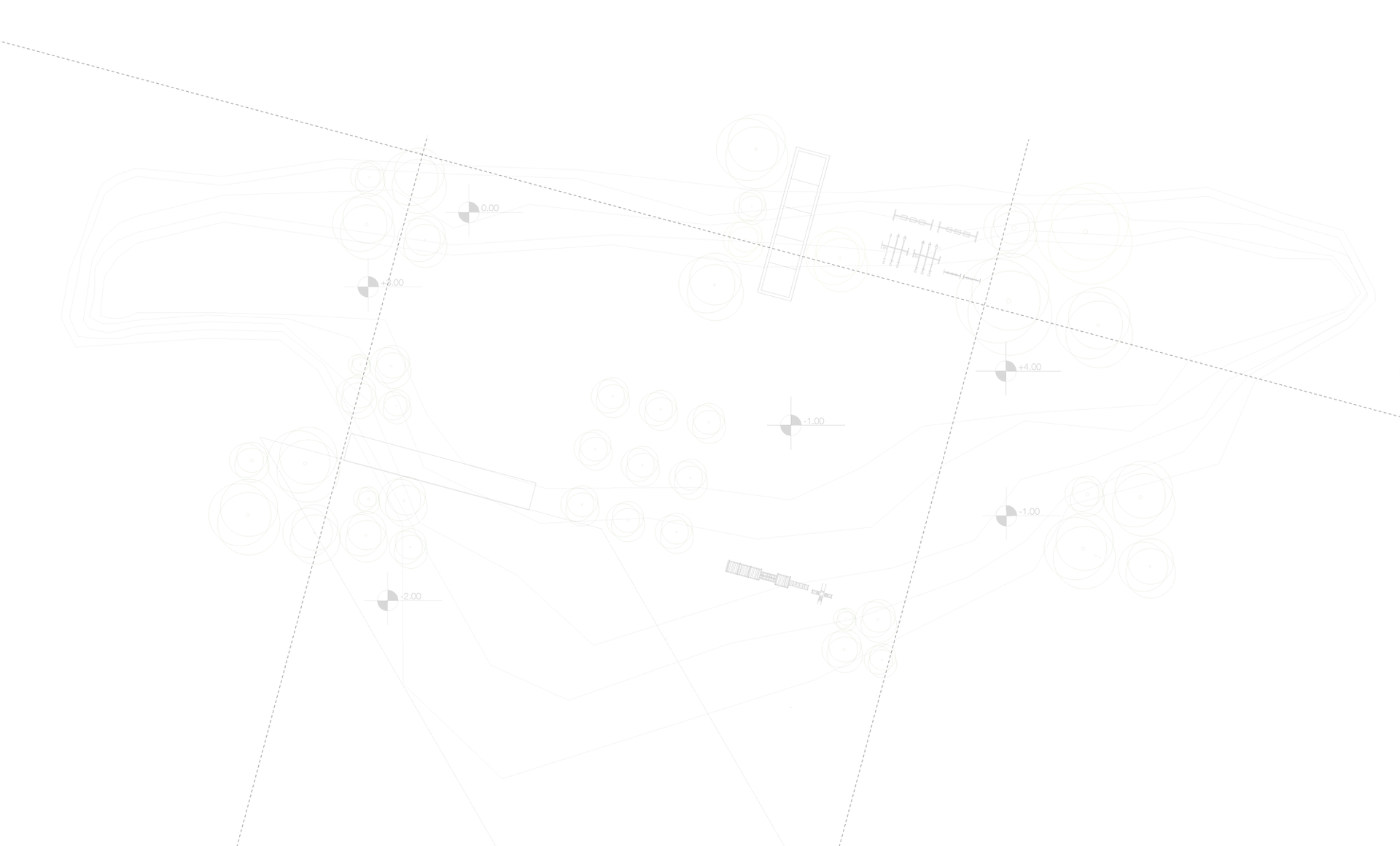
Centre for Space and Technique
Rom og Teknikk
Approach
The group reinterprets the old and develops new architectural strategies and tools through collaborative design and research, with particular emphasis on the experiential process of the architectural project as a working method. The studio is taught in collaboration with an invited international practitioner, whose approach is explicitly formulated in dialog with the AHO model. The relationship between this external approach and the tradition of AHO characterizes its teaching.
Architectural Context
Architecture is a constantly-changing, millennia-old discipline that works with the most basic and primitive of concerns while maintaining a sharply contemporary sense of the possibilities inherent in its own future. While its primary goal is building things, like houses or cities, it should be designed by responding to human experience and challenging critical thought. In this way, the practice of architecture is much more than a set of skills or core of competency; it needs to integrate multiple (changing and often contradictory) concerns within a realistic whole that includes a plan for its realization. This complexity and scale is has given rise to the idea of the “project”, in which the design task as well as the human dimensions of the practitioner and the inhabitant can be explored in a structured but free way. The project is simultaneously goal-oriented and speculative, accepting its conditions faithfully while never ceasing to expand and challenge those conditions.
Societal Role
In line with the group’s broad understanding of the capacity of architecture to engage both the privacy of the individual and the discourse of society at large, it sees architecture as necessarily embedded within society and its conditions. Architecture can enrich society; but it cannot change it.
Teaching Method: The Project
The constantly changing conditions that underlie architectural development require the practitioner to formulate a vision within which to study the relations of program, space, structure, materiality, performance and idea. The formulation of this vision occurs through the _architectural project_. Within a project, architects develop and defend a vision of the work in a social, artistic and critical context. Developing program, space, and structure, they assume conceptual responsibility for developing strategy and making decisions. The project forms an integrated but open environment of research into the particular conditions of the case at hand. The making of an individual architectural project is the best way to study and learn architecture. The essence of doing a project is in making decisions. Being able to make decisions as an architect means developing a vision, and making decisions based on that vision, understanding and taking responsibility for the design. The emphasis is put on critical, but imaginative thinking and on constructing a narrative for the process.
Elements
Space & Technique Collaboration approaches the project environment with the following organization:
- The studio is taught in collaboration with an invited international practitioner, whose approach is explicitly formulated in dialog with the AHO model.
- A given architectural program is studied — one whose next solution is by definition not known.
- Each semester, the studio researches the work of an exceptional practitioner or school, and uses this research in the discussion and design that the studio produces.
- The studio focusses on an integral understanding of the space of the building, the tools through which its design is studied and the manner in which the results are communicated.
Research Interests
The group focuses on the contemporary landscape of architecture and its ideas. By researching the design process and the conditions that support it, it seeks to develop an ongoing discourse on selected architects and their work.
Professor
Neven Mikac Fuchs
The Oslo School of Architecture and Design
Institute of Architecture
Previous Guest Teachers
Høst 2020 : Pearling Path
Noura Al Sayeh
Noura Al Sayeh
Vår 2020 : An Architectural Proposal
Pascal Flammer
Høst 2018 : Architectonic Typologies_Skeleton, Foundation and No walls
Giulia Giovanna Furlan, Francesca D'Apuzzo & Patricia da Silva
Atelier Olgiati, Accademia di architettura
Vår 2018 : Living in the City_The Metropolitan Façade
Peter St John
Høst 2017 : SOLO AHO
Kersten Geers
Office Kersten Geers David Van Severen
Vår 2017 : Onomichi Scenery
Junya Ishigami
Høst 2016 : Experience of a Nordic Space
Christian Kerez
Vår 2016 : Buildings and Their Territory
Tony Fretton
Tony Fretton Architects
Høst 2015 : Nostalgic Future
Takaharu Tezuka
Tezuka Architects
Vår 2015 : Continuous City vs. Discontinuous City, LA
Mark Lee
Johnston Marklee
Høst 2014 : Learning from Sverre Fehn
Go Hasegawa
Go Hasegawa and Associates
Vår 2014 : Spaces
Raphael Zuber
Raphael Zuber Architect
Høst 2013 : Hotel in Bloomsbury, London
Jonathan Sergison, Stephen Bates
Sergison Bates Architects
Vår 2013 : Tropical Prototypes, Santo Domingo DR
Florian Idenburg & Jing Liu
SO-IL
Høst 2012 : Two Houses, Sapporo & Asahikawa, Hokkaido
Jun Igarashi
Jun Igarashi Architects
Vår 2012 : Barents Infrastructures, Barents Sea
Harry Gugger/LAPA
Harry Gugger Studio
Høst 2011 : Power-plant NY
Andreas Pedersen/ BIG
BIG-Bjarke Ingels Group
Vår 2011 : Un-named Design, Gwangju Korea
Ai Wei Wei
Ai Weiwei
Høst 2010 : A Very Connected House in a Wild Environment, Trient Valley Mt Blanc
Philippe Rahm
Philippe Rahm Architects
Vår 2010 : An Accommodation Place Near Haneda, Tokyo
Kumiko Inui
Office of Kumiko Inui
Høst 2009 : Inside the City, Porte la Chapelle Paris
Anne Lacaton/Lacaton Vassal
Lacaton & Vassal Architects
Vår 2009 : Built Topographies, Marine Research Centre, Lisbon
Manuel & Francisco Aires Mateus
Aires Mateus
Høst 2008 : Big House, Rhein Harbour Basel
Emanuel Christ & Christoph Gantenbein
Christ & Gantenbein
Vår 2008 : NO+CH, Centre for Acoustic Music, Beijing
Ryue Nishizawa/SANAA
Kazuyo Sejima + Ryue Nishizawa / S A N A A